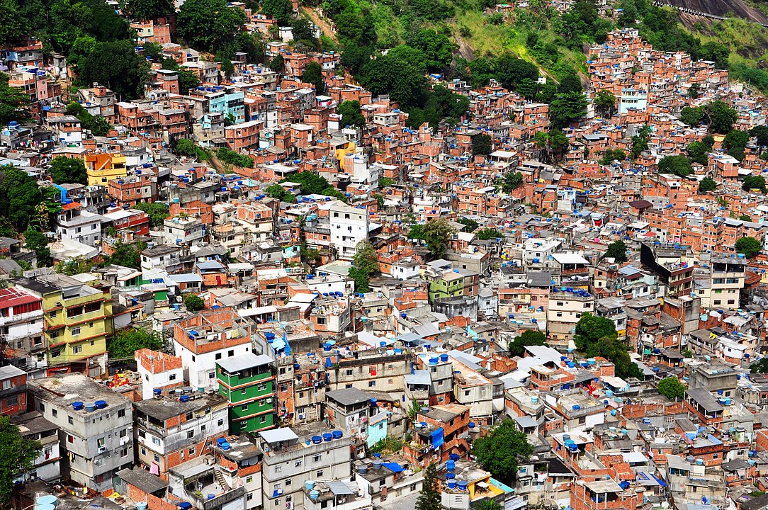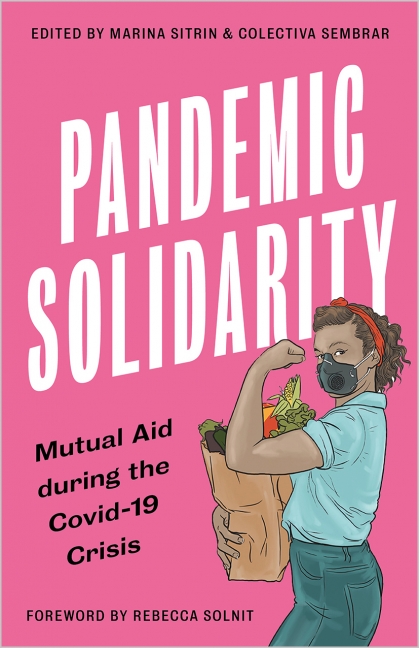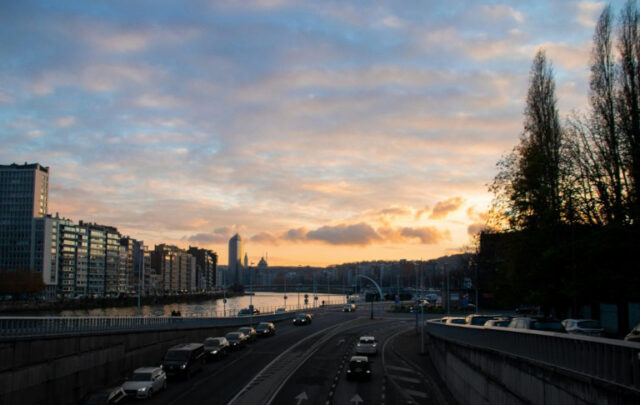We are often taught to fear other human beings, that some anonymous stranger is going to steal our food, money or valuables. Yet the global proliferation of community-based mutual aid in response to the COVID-19 pandemic shines a light on aspects of our better selves. Through the tangible, day-to-day ways people survive, have survived and will continue to survive, we can glimpse at who we really are — open, vulnerable, caring, brave, dedicated, compassionate and socially responsible people acting with, and through our collective fear.
The following passages are real-life stories of people coming together in solidarity to face the COVID-19 pandemic. Their full versions can be found in Pandemic Solidarity: Mutual Aid during the Covid-19 Crisis by Colectiva Sembrar and edited by Marina Sitrin (Pluto Press, 2020).
The book is a collection of narratives from around the world, based on interviews that took place during April 2020, in more than a dozen different countries and in over fifteen different languages.
THE BASIC PRINCIPLE OF SOLIDARITY IN THE FAVELAS OF BRAZIL
Vanessa Zettler
When the pandemic hit, Brazil was in the throes of an ultra-conservative movement, reified in Jair Bolsonaro’s presidency. It has been a political scenario representing a backlash against human rights so jarring that its rhetoric includes open endorsements of Brazil’s former military dictatorship.
In a country marked by extreme social differences, with the second highest concentration of wealth on the planet, the tragedy of class divides shaped the story of the pandemic from the very start.
One of the first deaths was of a poor, 63-year-old woman who worked as a maid for a family in one of the wealthiest neighborhoods in Rio de Janeiro. Her bosses had arrived from a trip to Europe infected with the virus, but had her continue to work in their house. They recovered. She did not.
Entire neighborhoods were without running water, while the media was telling people to wash their hands. Families living in cramped houses were told to socially isolate themselves. #Stayhome hashtags flew around, while thousands of homeless people wandered the streets. The public health system, SUS, was endorsed and cheered everywhere as our possible savior, but only after years of regressive policies and divestments.
On April 29, Brazil registered 5,017 confirmed deaths, surpassing the number of losses in China. When asked about these numbers by a journalist, Bolsonaro responded “So what? What do you want me to do? I don’t work miracles.” To make matters worse, these numbers were underreported, for there is a tremendous shortage of tests.
André de Carvalho, 48, has lived his entire life in the favela Morro da Formiga in Rio de Janeiro. A son of migrant workers, he became an organizer in 2013. This was a watershed moment in his life, having experienced the possibility of working for social transformation with his own hands:
Morro is a place of resistance, a quilombo. I am proud to be from here, for it made me who I am. There is an invisible wall that separates the asphalt from the favela. The work I do here happens through creating connections between these worlds.
We, residents of the favelas, know what our demands are. When the pandemic started, the concern of the people here was whether they would be able to eat or not.
At that moment, though, we had a lot of partnerships, people sent money here, donations of food and basic supplies … Another gap has been the issue of education. We are focusing on making people understand the seriousness of the moment. This is a very hard job because our people have a lot on their heads, and it’s been hard for many to understand you can’t socialize like before anymore.
There is a deficit in education in the favelas, and we know it is a project which allows people to be manipulated by discourses such as the one of this president. So we spread audio messages, stencil, graffiti, music, rap, funk. Every kind of tool possible to send a message speaking to the very reality of people.
Solidarity for me is a basic principle for us to live in a harmonious way. It is the opposite of social chaos.
ON DISABILITY JUSTICE IN SOUTH KOREA
Ji Young Shin
Internationally, South Korea has been praised for bringing COVID-19 under control. The secrets to this success have been the widespread availability of COVID-19 testing kits, implementing strict social distancing rules and ensuring transparency with the public. In fact, such measures appear to have prevented hoarding of food supplies or the breakdown of the medical system. This was an ideal test case to analyze and observe what kind of changes the COVID-19 prevention and control measures brought about in our social interactions.
We were made aware of the flip-side of social distancing: strict implementation of social distancing rules exacerbated the conditions of those who had already been segregated. The homeless, the poor and contract workers — especially women — were deprived of the means of survival, while immigrant workers and refugees were forced to head home or move to another country where they risked imminent persecution. The new moral imperative of social distancing brought about enforced solitude on the tacit consensus that it was inevitable. In a way, the entire society became subject to “cohort isolation.”
Most of the major COVID-19 outbreaks occurred in religious communities, secure wards for people with disabilities and nursing homes. On February 23, when the confirmed cases of COVID-19 rose to 566, 111 of them were patients in the Cheongdo Daenam Hospital, where 98 percent of the patients in the closed psychiatric ward were diagnosed with COVID-19. The quarantine lasted for over a month, during which the patients were effectively imprisoned in the ward.
The first death from COVID-19 in South Korea was a man hospitalized for over 20 years in a psychiatric ward in Daenam Hospital. At the time of his death, his body weighed only 42 kilograms, which, along with his symptoms, made it clear that his death could be attributed to the awful living conditions as much as the virus. His body was cremated swiftly without autopsy.
Pak Kyŏngsŏk, from the National Council of Popular School for People with Disability, criticized this as treating people with disabilities as carriers of the virus and segregating and subjecting them to cohort isolation in the name of public welfare. After a series of protests, the patients in the closed psychiatric wards in Daenam Hospital were relocated to other hospitals. In other words, they became deinstitutionalized only insofar as they were infected or dead.
The presence of those who could not afford to keep social distance has laid bare the forms of segregation and exclusion that have been in place long before the outbreak of COVID-19. The sense of frustration that non-disabled people have felt during lockdown, are the normal living conditions for many people living with disabilities. As many of them are unable to carry out their daily affairs without caregivers, the imperative of social distancing implies not only another form of institutionalization that they fought so hard to reject, but also something close to a death sentence.
CONFRONTING STATE AUTHORITARIANISM IN SOUTHERN AFRICA
Boaventura Monjane
In southern Africa, measures taken by states and governments to contain or delay the spread of COVID-19 are characterized by intensive militarization. Repressive state apparatus have been activated or intensified in most of the countries in the region to enforce lockdown or state of emergency regulations and monitor the movements of civilians. A critical aspect here is that the regulations prohibit the exercise of various economic activities practiced by many people in the so-called informal sector.
The enforcement of the lockdown regulations has, therefore, been threatening the livelihoods of millions. The informal sector is predominant in southern Africa, mainly in the trade sector, and is dominated by women.
In Zimbabwe, there were terrible incidences of police beating up and arresting street vendors, confiscating and destroying fresh vegetables and other foods of small-scale farmers who were selling at an open market. In Mozambique, the abusive behavior of a police officer, who slapped a disabled old man, was exposed through social media platforms by members of the public. In March, South African police fired rubber bullets at shoppers queuing for food outside a supermarket in the city of Johannesburg.
When the lockdown was announced on March 23 in South Africa, more than 2,800 soldiers were deployed to assist the police with enforcing the lockdown regulations. In mid-April, South African president Cyril Ramaphosa announced that he had deployed an additional number of 73,180 members of the military, allegedly to support the people and save lives: “This is a moment to be supportive to our people. I, therefore, order you to go out and execute this mission with great success.”
Several cases of abuse of power and brutality by both the police and the military have been reported since the lockdown was decreed, especially in densely populated poor neighborhoods of South Africa, Zimbabwe and Mozambique.
As I write these lines, an activist from Botswana told me that — although not as visible as in South Africa and Zimbabwe — the police and the defense force are controlling roadblocks and enforcing lockdown regulations, using excessive violence towards people who allegedly break the law in a manner never seen before.
Mozambique is going through an armed conflict of alarming proportions, with insurgent groups operating in the minerals and gas rich northern province of Cabo Delgado. The Mozambican state has recently acknowledged that this is an external terrorist invasion. Mozambican President Filipe Nyusi has deployed the army to act “against” the terrorist insurgents. Civil society thinks this may be a pretext for the army to abuse its power and violate human and democratic rights of citizens.
The increased militarization and consequent reinforcement of authoritarianism as a pretext to fight the pandemic in these countries has triggered the formation of intersectoral civil society coalitions in several countries in the region. These coalitions are not only building alliances between various civil society organizations and groups in their countries, but also seeking to articulate with each other across borders:
We were very worried by the measures taken by the government to enforce the state of emergency as we understood that it would further worsen the conditions of the majority of Mozambicans. These are people that work in the informal sector, forced to work every day to be able to put food on the table. So, the state of emergency might deteriorate the conditions of people that are already living in poverty, have been going hungry and are malnourished.
— Erika Mendes, Mozambique
As the COVID-19 crisis persists and evolves, Colectiva Sembrar remains committed to combating the pandemic through collective solidarity. To learn more about their ongoing activities — such as networking COVID-19 mutual aid groups, fundraising and broadcasting “telegram” messages by solidarity initiatives around the world — please visit PandemicSolidarity.net.
Teaser photo credit: By chensiyuan – chensiyuan, CC BY-SA 4.0, https://commons.wikimedia.org/w/index.php?curid=14872516






